(This article was updated on February 24, 2024 by Arun Kumar). From old Hollywood to millennials, here’s honoring the best actors who have stood the test of time and cemented a place in film history.
The Cambridge Dictionary defines an actor as “someone who pretends to be someone else while performing in a play, television, or a radio program.” It’s no easy task to bring to life the vision of a screenwriter. An incredible amount of expertise is required to inhabit a character. Acting as an art form has evolved over the years. In the silent era, actors heavily relied on body language and facial expressions to express a wide range of emotions. For modern viewers, except for the works of slapstick comedy legends Charles Chaplin, Buster Keaton, and Harold Lloyd, the silent era acting might come across as exaggerated and over-the-top. However, the first actor to win an Oscar was the German silent actor Emil Jannings.
With the advent of talkies, cinema gradually moved onto the era of naturalistic acting. There have been different schools of thought regarding the same. Stanislavski’s system proposes method acting, while the Meisner technique focuses on “being in the moment.” Irrespective of the methodology, we’re still mesmerized by movie actors and what they’re capable of in front of the camera.
In light of this, we decided to line up some of the great actors (male and female) of our time. These actors have given us an alluring treasure trove of performances that have stood the test of time. They’ve made us look beyond the glitz of celebrity culture, infusing richness and authenticity into the art of acting. Now, this is entirely my personal list, which may or may not align with yours. But that’s the point of such pieces. They’re meant to incite conversation so that the exchange of ideas can happen organically. Quickly, then, let’s dive in.
Best Actors Of All Time
20. Penelope Cruz
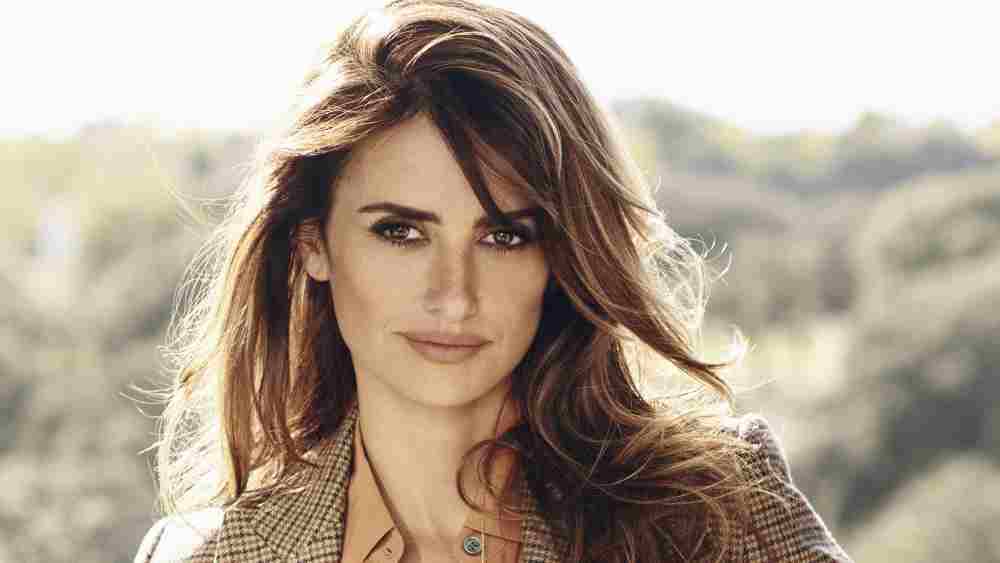
One of the most beautiful, gifted, and accomplished actors of her generation, Penelope Cruz studied classical ballet before taking up acting at the age of 15 (1989). Cruz kickstarted her acting career with Spanish TV shows and music videos. She made her film debut in 1993. In 1997, Cruz played a supporting role in the Spanish auteur Pedro Almodvar’s Live Flesh. She made five more movies with the director, all receiving international acclaim.
Penelope Cruz made her American debut in the late 1990s. She had two breakthrough roles in Hollywood in 2001 (Vanilla Sky & Blow) featuring opposite Tom Cruise and Johnny Depp, respectively. The actor has so far collaborated with great filmmakers like Woody Allen, Ridley Scott, Asghar Farhadi, and Michael Mann. Despite being an A-list actor in Hollywood, Penelope continues to take up brilliant roles in Spanish cinema.
19. Philip Seymour Hoffman
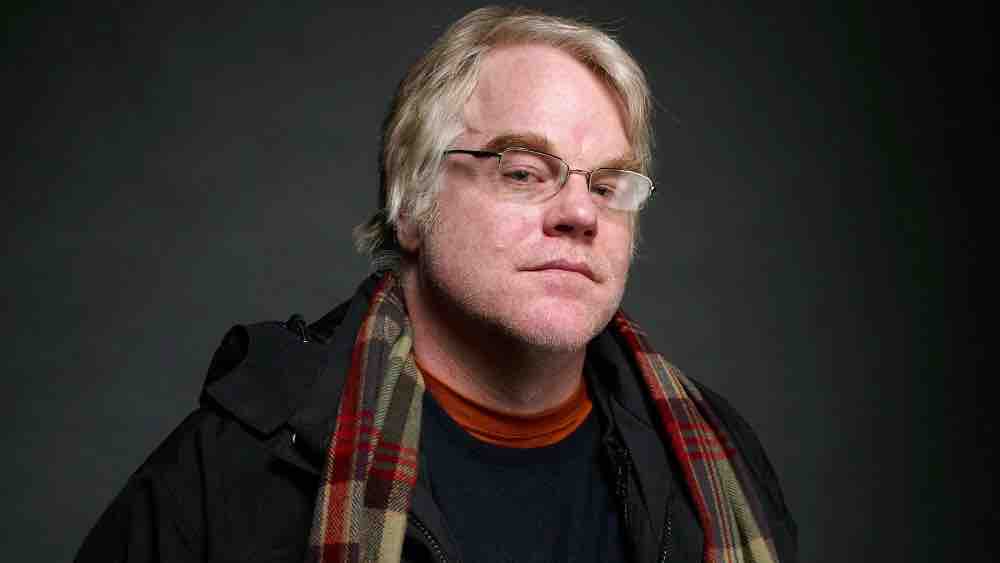
It’s been almost eight years since Hollywood lost one of its finest actors at an untimely 46, but the shock over his death still hasn’t dispersed. Phil Hoffman was a fiercely original actor who gave us captivating performances one after another. Whether as an intimidating villain in Mission Impossible or a sexually confused boom operator in Boogie Nights, Phil Hoffman slipped into the characters with great conviction. From art house indies to genre films, he left us with countless memorable performances in his two-decade career.
He was best known for his collaboration with Paul Thomas Anderson. His most powerful role in Anderson’s movie was as the charming cult leader in The Master. Hoffman was equally mesmerizing in the bizarre meta-fiction Synecdoche, New York, and in Bennett Miller’s Capote. The actor also made his mark in quiet, character-driven movies like Savages and Doubt. Despite joining the A-list actors of Hollywood, Hoffman continued to direct stage plays and stayed active in theater.
18. Gong Li
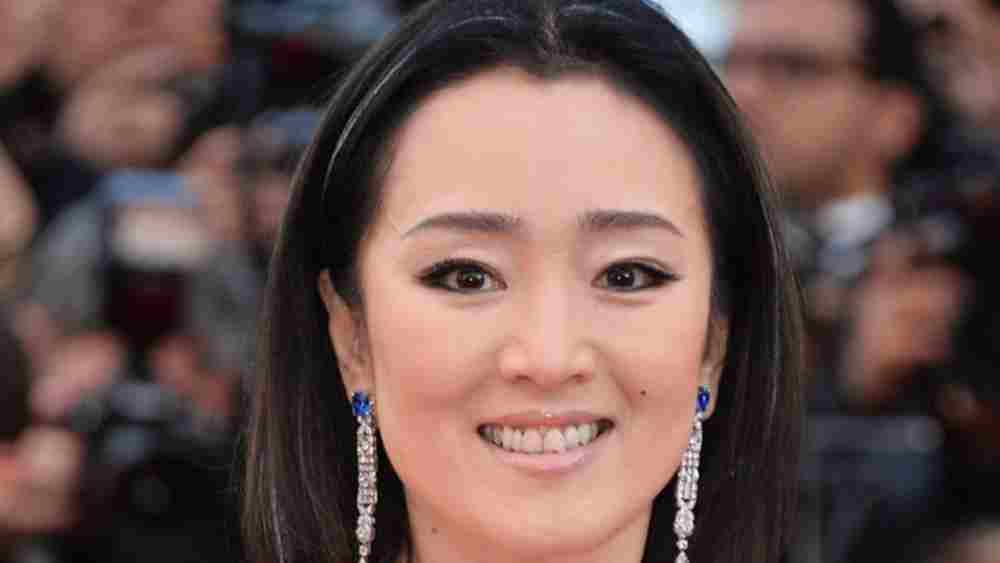
Born in December 1965 in Shenyang, China, Gong Li’s primary passion lay in music, aspiring to pursue a career in singing. Unable to enroll in her country’s top music school, Gong Li applied to Beijing’s Central Drama Academy. Even prior to her graduation, she secured the leading role in Zhang Yimou’s Red Sorghum, garnering instant international acclaim. Gong Li’s collaboration with Yimou spanned seven films, wherein she portrayed women from different walks of life, offering poignant performances in each.
Beyond Yimou’s works, her naturalistic acting shines in movies like Farewell My Concubine, A Soul Haunted by Painting, and The Emperor and the Assassin. Gong Li also worked with Wong Kar-wai on 2046 and The Hand. Her Hollywood debut came with Rob Marshall’s Memoirs of a Geisha.
17. Marion Cotillard
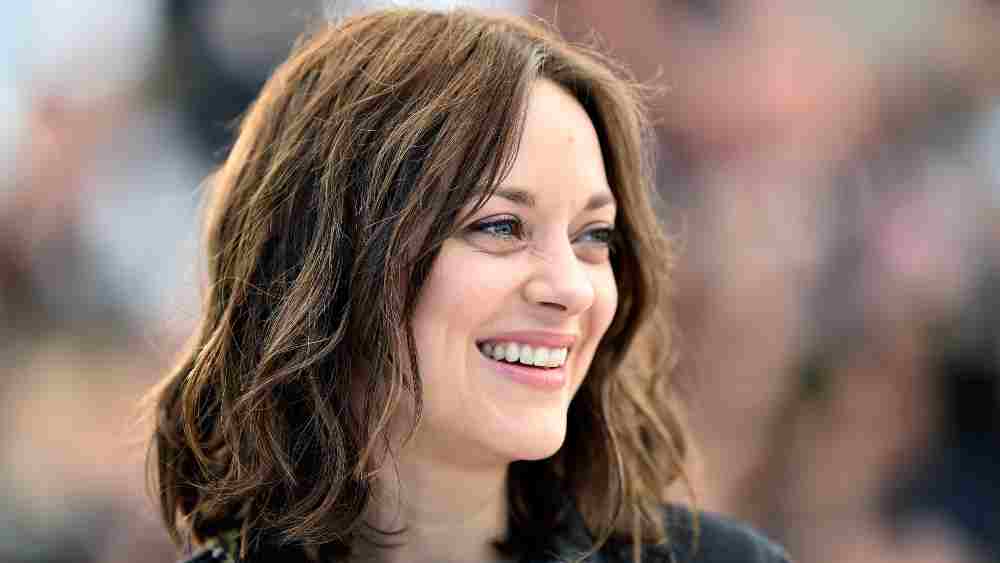
Born in Paris in 1975, Marion Cotillard hails from an acting family (her father is a playwright and actor, and her mother is a drama teacher). Cotillard made her acting debut as a child in one of her father’s plays. She also played minor roles in TV shows. Marion Cotillard made her movie debut at the age of 18. Her first lead role was in the 1996 TV movie Chloe. The actor’s ability to convey profound emotions with simple gestures (and lack of words) was evident in her earlier works like Pretty Things (2001).
Cotillard made her Hollywood debut with Tim Burton’s Big Fish (2003). A few performances and years later, she enjoyed international recognition for her mesmerizing portrayal of French singer Edith Piaf in La Vie En Rose (2007), nabbing an Academy Award, Golden Globe, and a BAFTA for the role. Marion Cotillard’s nuanced performances in Rust and Bone and Two Days, One Night remain a testament to her wide range of acting abilities.
16. Denzel Washington
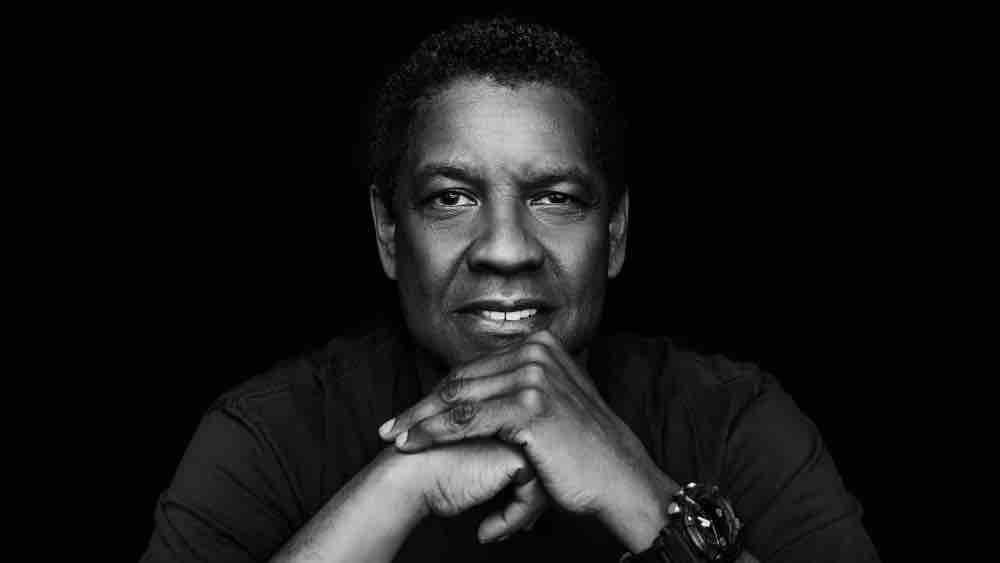
Denzel Washington has often been credited with reconfiguring the conventional idea of stardom by associating himself with characters defined by their resilience and inner strength. His towering screen presence makes it almost impossible to take your eyes off him. The versatile and fine actor has received critical acclaim for his portrayal of real-life figures: a Muslim minister in Malcolm X, a football coach in Remember the Titans (2000), and an anti-apartheid activist in Cry Freedom (1987). He won an Academy Award for Best Actor for his role as a corrupt Los Angeles cop in Training Day.
In 2016, Fences, directed and produced by Denzel Washington, was nominated for an Academy Award in the Best Picture category.
While visiting Atlanta to promote the film, he took time off to visit his childhood librarian, Miss Connie, for her 99th birthday. They hadn’t seen each other in over half a decade, but she said she’d never forgotten him.
15. Gian Maria Volonte
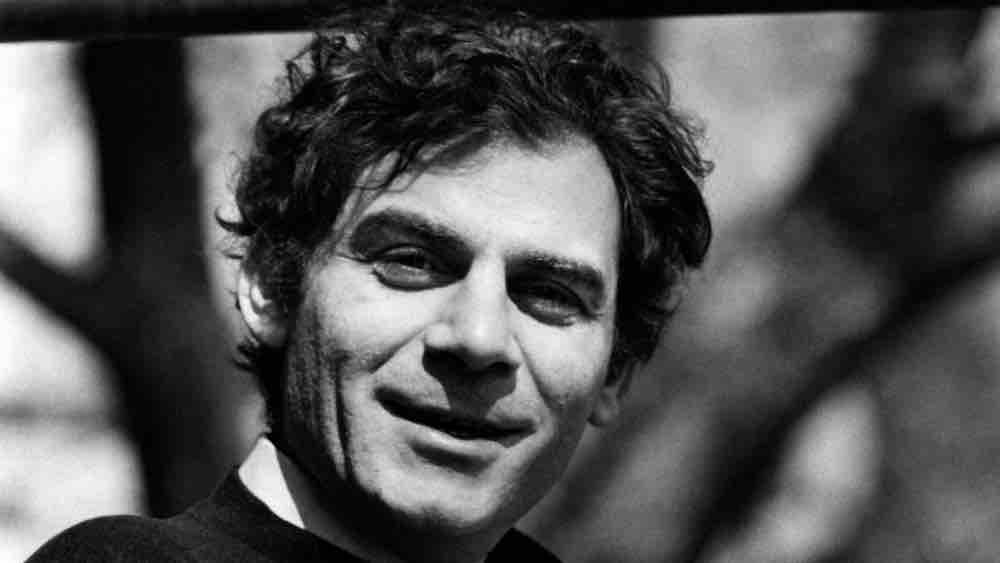
Known for his chiseled features and strong political activism, Volonte rose to prominence as an Italian actor in the 1960s. He garnered international recognition for his iconic roles played in Sergio Leone’s spaghetti westerns. But delve into his collaboration with two important Italian filmmakers, Francesco Rosi and Elio Petri, to understand the brilliance of Volonte’s acting prowess. Petri’s Investigation of a Citizen Above Suspicion and Rosi’s Christ Stopped at Eboli stand as testaments to his remarkable adaptability as an actor. In Petri’s works, Volonte played intricate, psychologically layered characters defying simplistic categorization as hero or villain. His partnership with Rosi spanned five films, where he most often played controversial real-life figures.
In his formative years, Volonte apprenticed with a traveling theater troupe, ultimately solidifying his commitment to acting. He was also a member of the Italian Communist Party and never kept his political leanings a secret. In fact, it’s his political beliefs that led to the great success of Italian political cinema in the 1970s.
14. Bette Davis
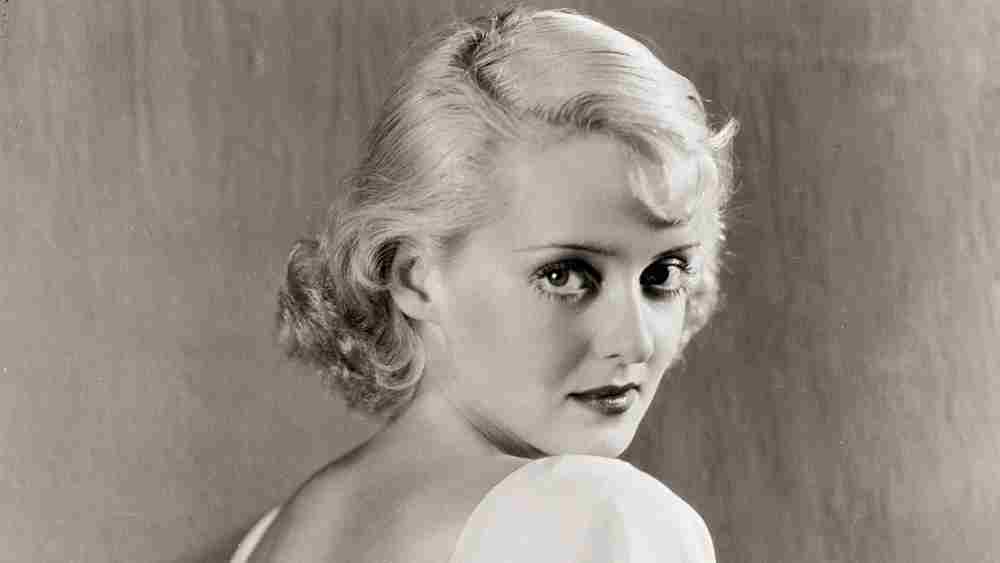
Bette Davis, a fearless and exceptionally talented performer, debuted on Broadway at 21 in 1929. Her film debut followed in 1931. Despite lacking what studio executives deemed ‘sex appeal,’ Davis defied expectations, garnering three Oscar nominations by the late 1930s, winning two. Although Bette Davis received acclaim in romantic dramas, her characters were consistently strong and relevant.
Davis’ stardom dwindled in the 1950s, post All About Eve, yet her career saw a resurgence with Robert Aldrich’s What Ever Happened to Baby Jane? (1962), where she portrayed a mentally unstable former child actor, earning her eleventh and final Oscar nomination. Bette Davis remains a memorable figure of the Hollywood Golden Era, her groundbreaking roles leaving an indelible mark in Hollywood.
13. Marcello Mastroianni
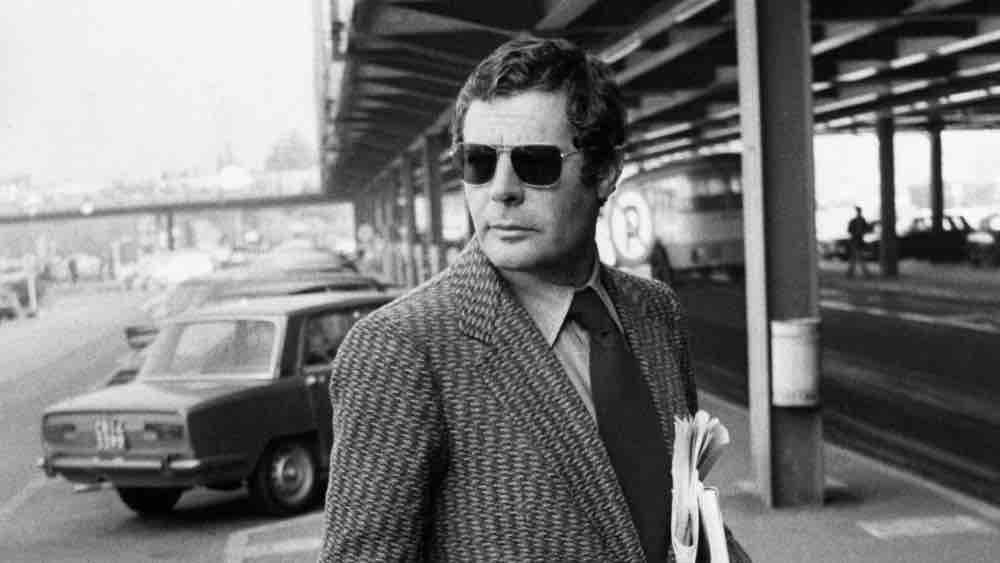
Though largely pigeonholed as a matinee idol and a sex symbol — thanks to the charming roles he played in Fellini’s movies — Mastroianni was an extraordinarily nuanced and serious actor. Marcello Mastroianni grew up during the turbulent times of World War II. After the end of the war, he joined the dramatic society and was discovered by the renowned Italian filmmaker Luchino Visconti.
His cool screen presence is widely known. But he is more than a pretty face. His ability to incorporate real and profound human emotions into his characters is unparalleled. In fact, the actor became the perfect embodiment of a modern man confronting an existential crisis. Mastroianni also has a great knack for comic timing.
His collaboration with Fellini, Antonioni (La Notte), and Visconti (Le Notti Bianche) might have made him an international film star, but his remarkable performances continued beyond the 1960s. The Organizer, A Special Day, and Dark Eyes are some of his overlooked works.
12. Dustin Hoffman
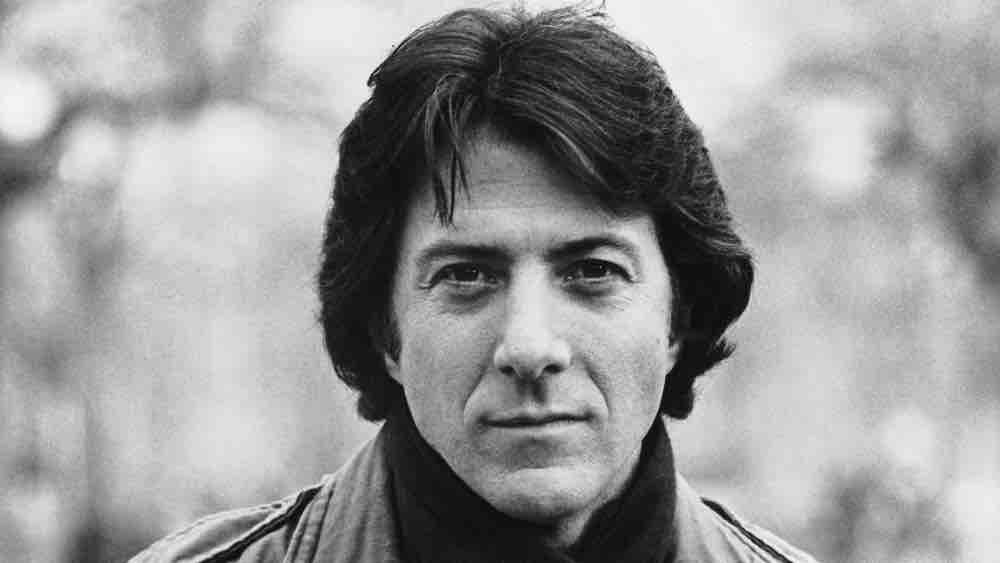
In an incredible career spanning over five decades, Dustin Hoffman has made versatility synonymous with his name. Surprisingly, he initially wanted to be a classical pianist after having played the instrument for much of his college years. Looking for an easy class to pass, Dustin took up acting at Santa Monica College. This is where his tryst with acting began, eventually landing him at the Pasadena Playhouse. He broke out onto the scene with Mike Nicholls’ The Graduate, where he played Benjamin Braddock. It earned him the first of his 7 Oscar nominations, though he narrowly missed out to Rod Steiger. Hoffman followed this up with a biopic, Lenny, that narrated the tale of a tragic comedian who died at the age of 40.
But, his career-defining role was to come in 1976. He featured alongside stalwarts like Laurence Olivier and Jon Schieder in Marathon Man. It was reported that Dustin could not sleep for days prior to the shoot.
Three years later, he delivered yet another outstanding performance in Kramer vs Kramer, consequently winning an Academy Award for Best Actor. He would later add to that tally with a moving performance as an autistic but prodigious brother to Tom Cruise’s character in Rain Man.
11. Gary Oldman
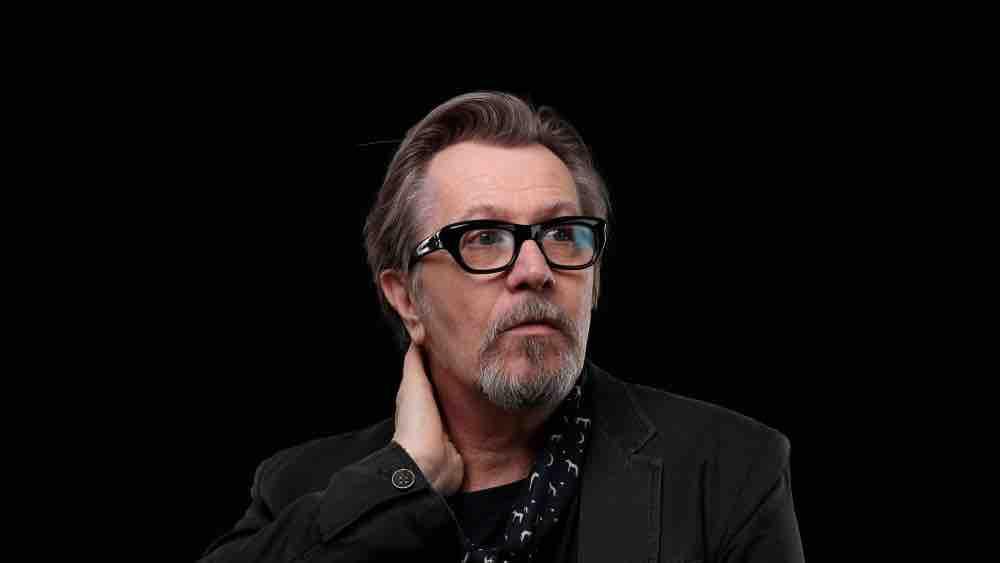
One of the finest actors of his generation, Gary Oldman, had an uncanny ability to transform into any character he played. An acclaimed playwright in Prick Up Your Ears, a prodigious musician in Immortal Beloved, a blood-thirsty vampire in Francis Ford Coppola’s Dracula, a wizard with an aura of mystery in Alfonso Cuarón’s Harry Potter and the Prisoner of Azkaban, a crafty espionage veteran in Tinker, Tailor, Soldier, Spy, Gary Oldman has demonstrated an almost chameleon-like ability to morph into any role he’s portrayed.
Like his celebrated contemporary Daniel Day-Lewis, Gary Oldman started off in British theater and later switched to playing minor characters in films and television. His breakout role came with Sid and Nancy (1986) as Sid Vicious, a punk icon who’s remembered as the bassist for Sex Pistol. Gary was able to articulate that beneath the glitz and glamor of a rock star lifestyle was a child in need of unconditional love and validation. Sid may have been a raging murderer, but Oldman humanised him.
By the mid-90s, Oldman had become the first choice for all villainous roles. These roles earned him a massive cult following, with Tom Hardy calling him his “absolute complete and utter hero.” In 2018, he finally won an acting Oscar for his outstanding performance as Winston Churchill in Darkest Hour.
10. Anthony Hopkins
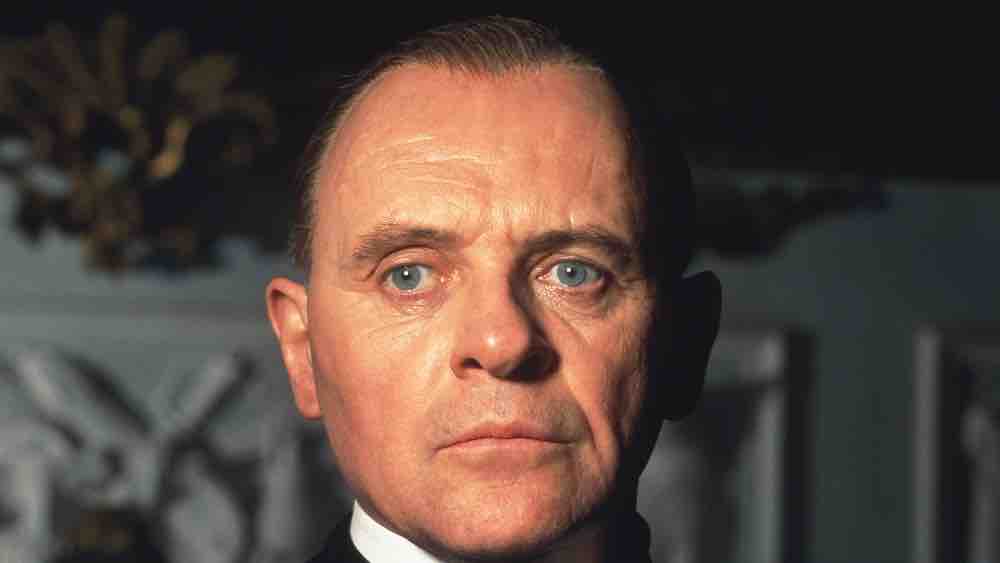
The oldest actor to win an Acting Oscar, Anthony Hopkins, delivered a moving performance in The Father as an elderly man grappling with dementia. But his most memorable role came years earlier as the terrifying Hannibal Lecter in The Silence of the Lambs. AFI ranked his performance #1 in its list of the 100 Years of the Greatest Heroes and Villains.
Hopkins joined the Royal National Theatre and this is where his tryst with plays and cinema began. He was spotted by Laurence Olivier back in 1965, who insisted he join the institute. Since then, he’s been knighted by Queen Elizabeth II and even received a star on the Hollywood Walk of Fame. The actor is said to be highly influenced by the legendary Richard Burton.
Hopkins is known for his down-to-earth charm and is adept at playing men with pent-up emotions. From the underrated thriller Magic (1978) to playing a loyal butler in Remains of the Day (1993), and as the troubled Pope Benedict XVI in The Two Popes (2019), Hopkins brilliantly realizes the quiet agony of these repressed souls. And just when we thought Hopkins had reached his twilight years, he came up with a career-best performance in Florian Zeller’s The Father (2020).
Anthony Hopkins is well-known for his preparation for roles. He goes over his lines multiple times until they sound natural to him. When shooting Steven Spielberg’s Amistad, he shocked the cast and crew by delivering a seven-page speech flawlessly in one go.
9. Laurence Olivier
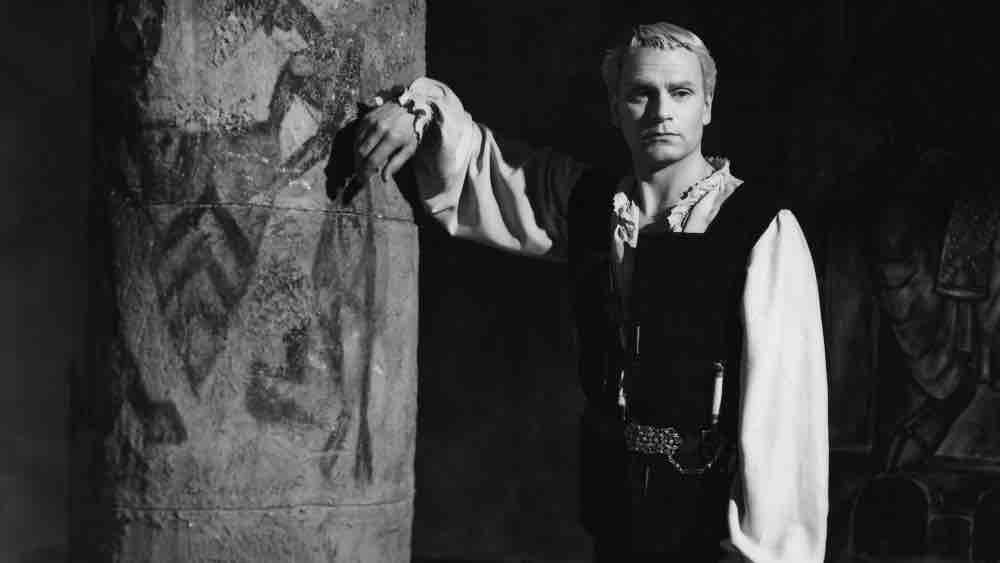
A master perfectionist, Laurence Olivier, along with Richardson and Gielgud, formed a highly influential triumvirate that revolutionized British theater. Talking of film, Olivier became a household name playing some of literature’s most celebrated lovers — a swoon-worthy Darcy in Pride and Prejudice and a charismatic Maxim de Winter in Rebecca.
A remarkably dynamic performer, Lawrence’s key to portrayal was his ability to hold on to a physical characteristic, like a specific item of clothing. He would often rehearse his lines and had immense control over his voice, honed through his formal training at the Central School of Speech and Drama. His dedication was palpable in every role he undertook. Who can possibly forget his bellowing wartime call for arms or the immaculate St. Crispin’s speech in Henry V? The memorable portrayal earned him an Academy Award for Best Actor. Olivier has also won two BAFTA awards.
One of the greatest actors in Hollywood, Olivier Lawrence was conferred with an honorary Academy Award for his exceptional body of work in 1978. The largest auditorium in the National Theater was later named after him in remembrance of his outstanding contribution to theater.
8. Ingrid Bergman
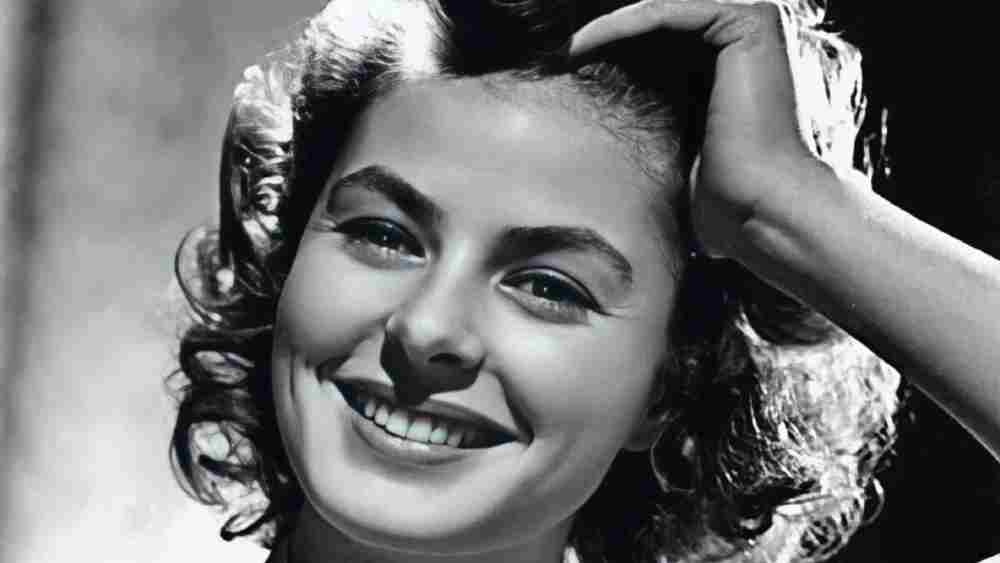
Venerated as “Sweden’s illustrious gift to Hollywood,” Ingrid Bergman’s charismatic screen presence and profound performances have left a lasting legacy in cinema. She made her acting debut in 1932, and her breakthrough role came with the Swedish drama Intermezzo (1936). The film caught the attention of the legendary Hollywood producer David O. Selznick and was remade in 1939. It turned out to be a massive box-office hit.
Later, in 1942, Ingrid Bergman played opposite Humphrey Bogart in a movie that’s still considered one of the greatest of all time. Following Casablanca, classics like Gaslight, Spellbound, and Notorious established Ingrid as an actor who could tackle diverse genres and characters.
Bergman has won three Academy Awards, among numerous other accolades. In her final big-screen role, she offered a spellbindingly nuanced performance in the Swedish auteur Ingmar Bergman’s masterpiece Autumn Sonata (1978).
7. Tatsuya Nakadai
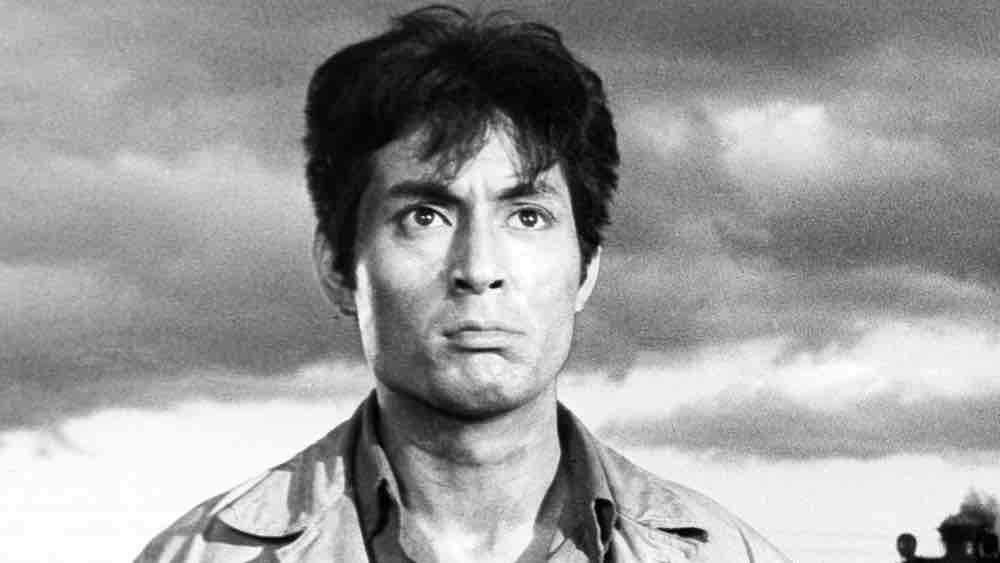
Mifune rose to international fame because Kurosawa’s works were already recognized in Western countries. But there was another equally brilliant Japanese actor in the same era who was as versatile or uniquely flexible as Mifune. A highly disciplined craftsman, Tatsuya Nakadai came from a theatrical background. The actor appeared for a few seconds in Kurosawa’s Seven Samurai. Later, he went on to play the chief antagonist in Kurosawa’s Yojimbo and also leading roles in Kurosawa’s Kagemusha and Ran.
But Nakadai’s acting career was significantly shaped by the works of humanist filmmaker Masaki Kobayashi. His performances as troubled individuals in The Human Condition trilogy and Hara-Kiri resonated deeply with the post-war Japanese youth, offering poignant portrayals of individuals marginalized by society’s constraints. Much like Mifune, Nakadai adeptly navigated between naturalistic and stylized acting styles. Besides Kurosawa and Kobayashi, Nakadai also collaborated with esteemed Japanese directors like Mikio Naruse and Kihachi Okamoto. His anti-hero character in Okamoto’s Sword of Doom is one of the bleakest on-screen depictions of a samurai.
6. Meryl Streep
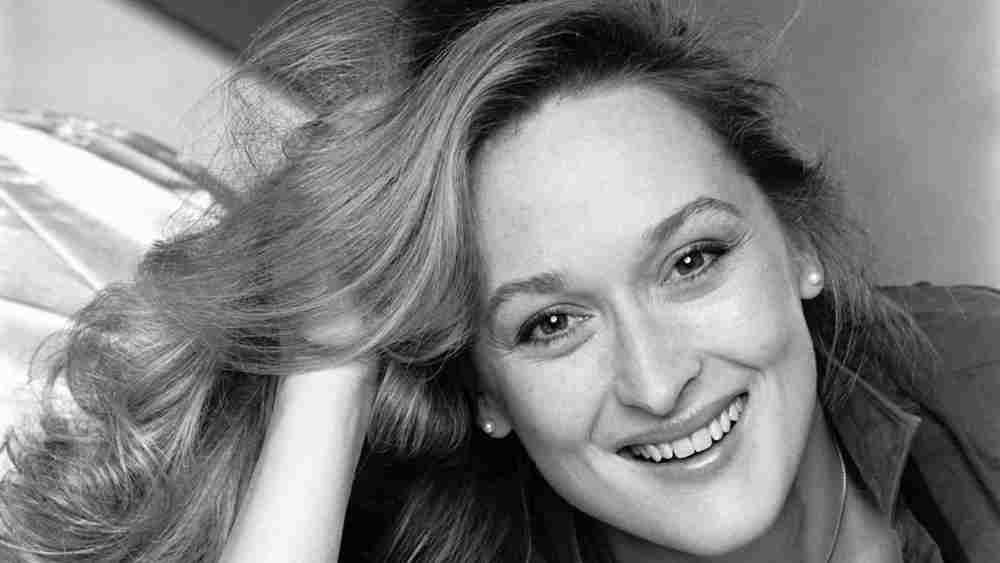
Meryl Streep is hailed by many international critics as one of the greatest living actors. She currently holds the record for the most nominations in acting categories. A staggering 21! And she has won three Oscars among the 21 nominations. However, it is still Katharine Hepburn who holds the highest number of Oscar wins (among both male and female actors). Katharine Hepburn garnered twelve Oscar nominations.
Born in 1949 in New Jersey, Streep’s passion for acting led her to enroll at the Yale School of Drama. Her cinematic journey began with her debut in Fred Zinnemann’s Julia, followed by three acclaimed performances in The Deer Hunter, Manhattan, and Kramer vs. Kramer within the next two years. She won a Best Actor Academy Award for Kramer vs. Kramer.
Streep’s extensive academic training and theater background have shaped her into an artist who meticulously prepares for her roles. Like her esteemed male actor counterparts of the era, she underwent a profound physical and emotional transformation, fully becoming the character she played. Films such as Sophie’s Choice, Silkwood, Out of Africa, and A Cry in the Dark showcase her unparalleled versatility.
Throughout her career, Meryl Streep has achieved longevity and sustained success that only a few actors, regardless of gender, could attain.
5. Hideko Takamine
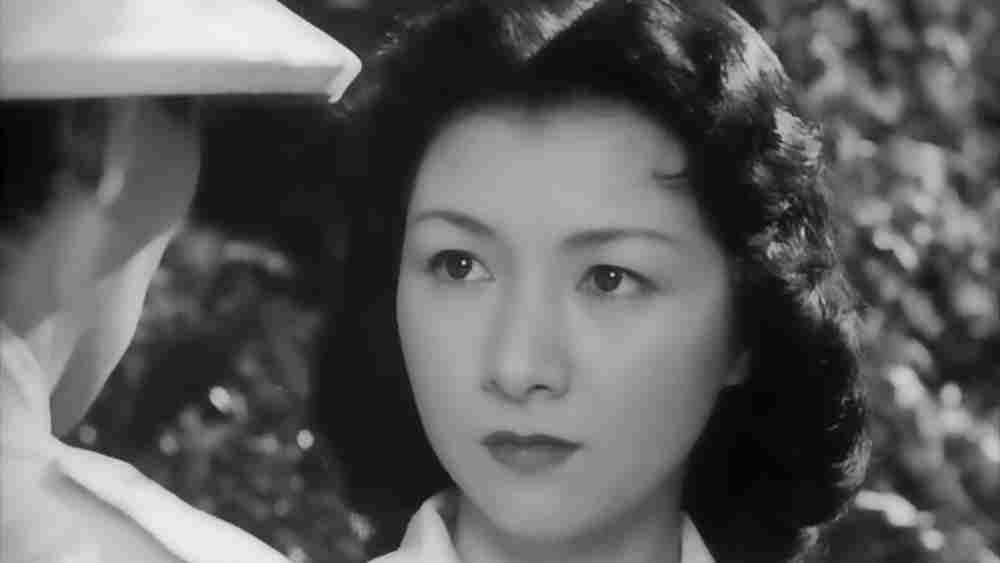
Long before Hideko Takamine emerged as a versatile and extraordinary actor, she was a child star. Takamine made her acting debut at 5 in 1929. Two years later, she played a small role in Ozu’s silent comedy, Tokyo Chorus. Before being cast in her first leading role, Takamine had appeared in nearly a hundred films. However, it was her roles in Keisuke Kinoshita and Mikio Naruse’s films that truly established her as the greatest star in post-war Japanese cinema.
Unlike her extraordinary contemporaries, Kinuyo Tanaka and Setsuko Hara, Takamine played a wide range of characters, often characterized by their self-assurance and spiritedness. Her remarkable versatility in acting was particularly evident in films such as Lightning, Twenty-Four Eyes, Floating Clouds, Flowing, and When a Woman Ascends the Stairs. Takamine, an iconic figure in Japanese cinematic history, retired from acting in 1979 and passed away at the age of 86 in 2010.
WATCH: 10 Greatest Yasujiro Ozu Films, Ranked
4. Al Pacino
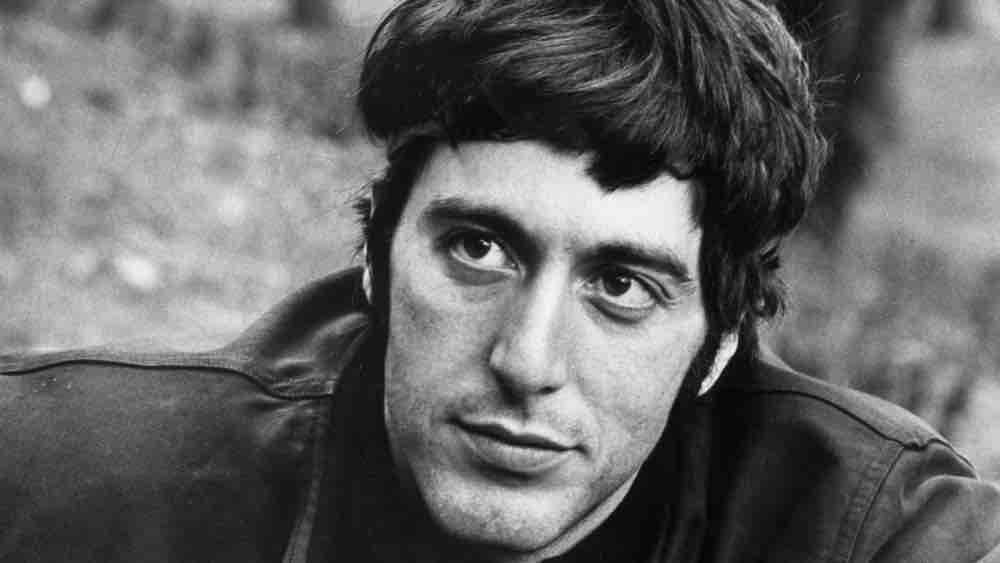
Al Pacino has had one of the most prolific careers in the history of Hollywood. Spanning over 50 years, he’s one of the very few actors to have received the Triple Crown – Academy, Emmy, and Tony Awards for Best Actor. The actor earned acclaim and recognition with his breakthrough role as Michael Corleone in Coppola’s The Godfather. But Dog Day Afternoon (1975), where he collaborated with Sidney Lumet for the second time after Serpico (1973), remains one of his finest performances and among his greatest films.
Though he was almost typecast in the gangster role, Al Pacino actively sought different roles. From the early 1970s to the recent decade, he’d played a cop, a small-time crook, a mafia boss, a blind army veteran, a football coach, a truth-seeking journalist, and even a devil (in “The Devil’s Advocate”). I would be lying if I said I hadn’t picked up anything that looked like a gun and shouted: “Say hello to my little friend,” while blasting off some baddies.
He now runs his own studio called Chal Productions. The first two letters ‘Ch’ are a tribute to his friend and acting mentor, Charles Laughton who’s a co-founder of the company.
3. Robert De Niro
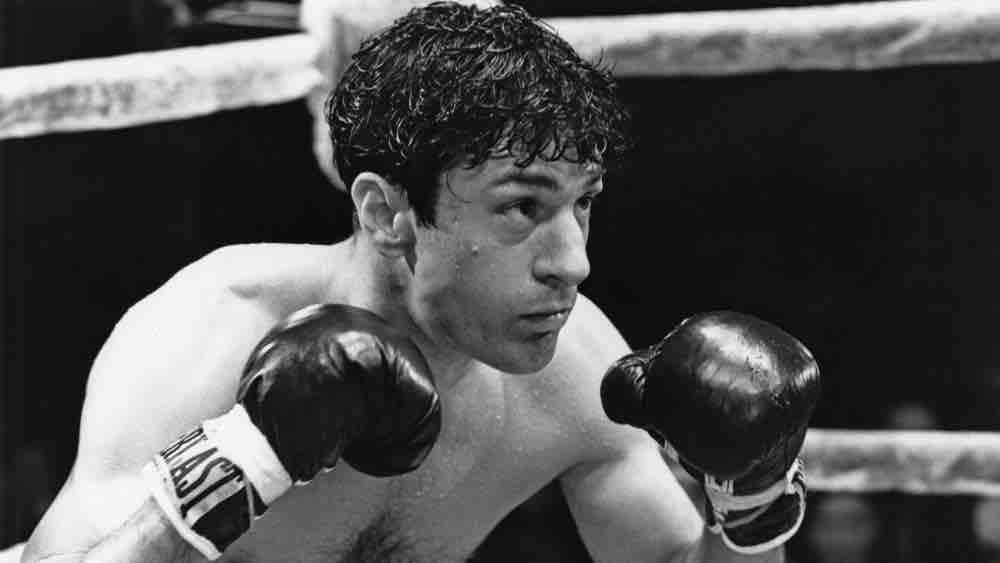
A frequent collaborator with Martin Scorsese and one of the greatest actors ever, Robert De Niro has won 2 Academy Awards (for Best Actor) in his distinguished career. The first one was for his role as Vita Corleone in Coppola’s crime saga, The Godfather Part II, in 1974. Six years later, he clinched another win for Raging Bull as boxer Jake LaMotta. The actor is renowned for his ability to physically, vocally, and psychologically transform into his characters.
No actor has consistently delivered tough-guy roles with as much style and depth as Robert De Niro. However, he has also excelled in several poignant roles, with notable performances in The Deer Hunter (1978), The King of Comedy (1982), and Awakenings (1990), Taxi Driver (1976). Additionally, De Niro’s talent for comedic performances is often underrated, with one of his greatest comedic roles being in Midnight Run (1988).
When asked why he picked physically demanding roles like Raging Bull and Taxi Driver, De Niro was quoted as saying:
To totally submerge into another character and experience life through him, without having to risk the real-life consequences – well it’s a cheap way to do things that you would never dare to do yourself.
Tells you all you need to know about him!
Interestingly, an English girl group released a fan song called “Robert De Niro’s Waiting…” which remained on the charts for 12 weeks.
2. Daniel Day-Lewis
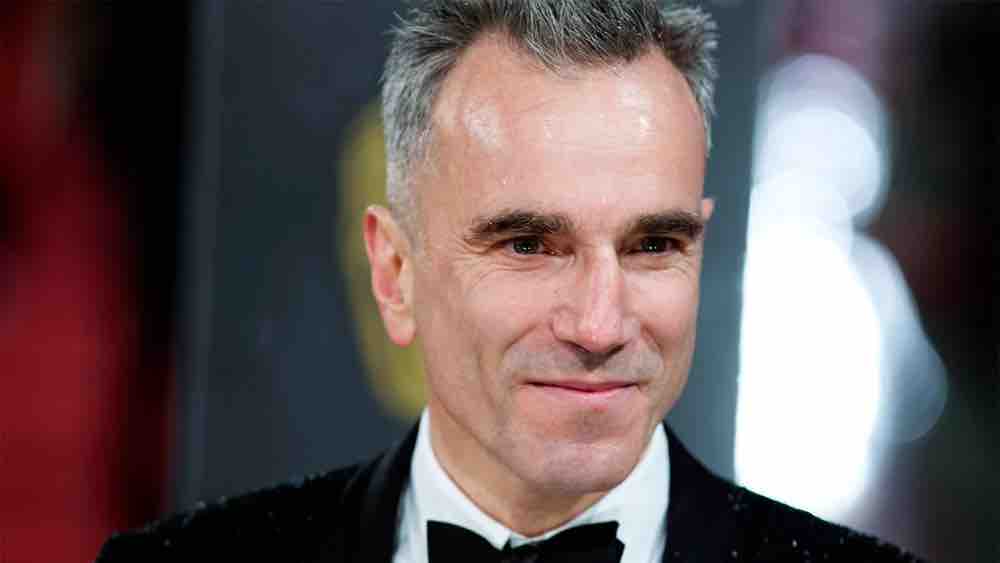
If there’s one actor who deserves the top spot among other greats, it’s Daniel Day-Lewis. In his formative years, he developed the skill of mimicking the mannerisms of those around him as a coping mechanism for bullying, a skill that would later become invaluable in his acting career. Day-Lewis is known for his elusive presence in the film industry, having appeared in only six films since 1988, often taking breaks of up to five years between roles.
An intense method actor, he’s known to fully immerse himself in his characters throughout the entire filming process. For his role in In The Name of the Father, he spent two nights in jail and underwent nine hours of interrogation by three teams of police officers. While filming My Left Foot, he insisted on using a wheelchair even when visiting restaurants.
This unwavering commitment to his craft has earned him an unprecedented three Academy Awards for Best Actor for his performances in My Left Foot (1989), There Will Be Blood (2007), and Lincoln (2012). He is the first actor (male) to have three Oscars. Sadly, Day-Lewis announced his retirement from acting following the release of Phantom Thread in 2017.
1. Marlon Brando
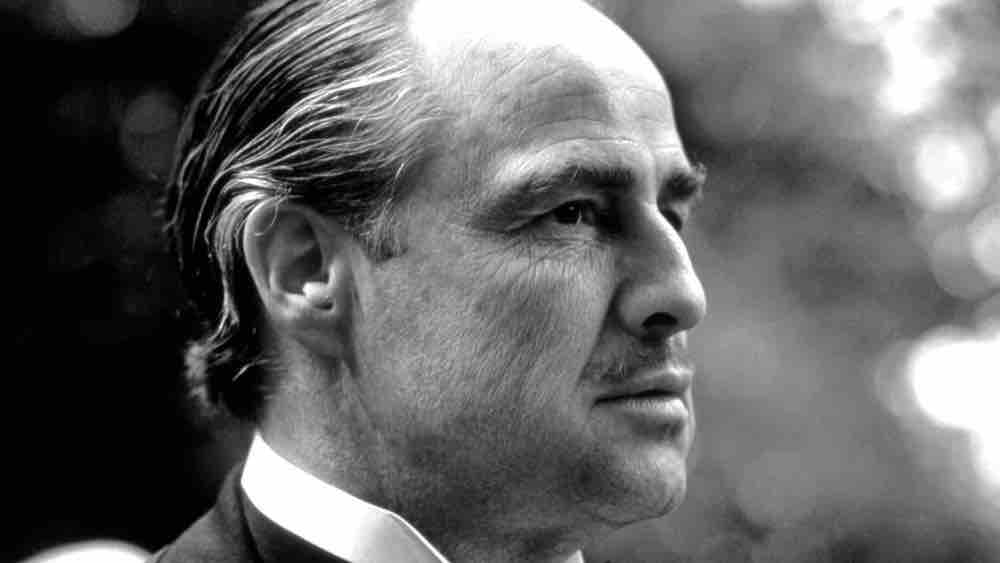
Marlon Brando’s career, spanning over five decades, is nothing short of legendary. He is not just the greatest actor but one of the most influential figures in 20th-century cinema. Brando was the most renowned pupil of Stella Adler and a pioneer in adopting the method acting technique by Stanislavski in 1950s Hollywood. This was a time when the Studio system was declining, giving Brando the freedom to explore a wide range of roles early in his career.
His performance in A Streetcar Named Desire as a factory salesman is well-known, but his versatility is evident in other roles too. He played a paraplegic in The Men (1950), a Mexican revolutionary in Viva Zapata! (1952), Mark Antony in Julius Caesar (1953), and a rebellious biker in The Wild One (1953). He even did a musical with Frank Sinatra (Guys and Dolls, 1955).
Brando won his first Academy Award (for Best Actor) for his role as Terry Malloy in On the Waterfront, featuring the iconic “I coulda been a contender” scene. His second acting Oscar came for his portrayal of Vito Corleone in Coppola’s The Godfather. While these roles are celebrated, it’s important to also acknowledge his performances in Burn! (1969), Last Tango in Paris (1972), and The Missouri Breaks (1976).
Beyond his acting career, Brando was one of the most committed actor-activists in American history. He fought against the mistreatment of Native Americans and famously declined to accept his second Academy Award, citing the portrayal of Native Americans in a bad light. His dedication to the civil rights movement was evident when he stood near the podium during Martin Luther King’s “I Have A Dream” speech.
Conclusion
These great actors in cinema history have not only showcased exceptional talent but also shaped the art of storytelling. Their performances transcend time, leaving indelible marks on our culture and hearts. While this list is subjective, the impact of these actors is undeniable. They remind us that great acting is not just a craft but a legacy that endures.
And if you have a favorite actor, check our GSJJ where you can get cool, bespoke movie character badges, lapel pins, stickers from popular movies and TV shows. They’ve got a ton of templates to choose from. Create one for yourself or order for a friend now.

(Additional writing by Arun Kumar)
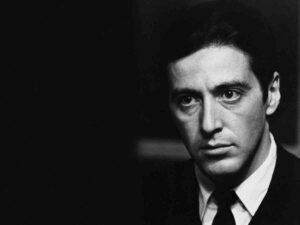
Really liked this article. What a diverse, exciting list. As a true Al Pacino fan, I am especially approving of the top pick!
And I appreciate the “reel and real life” mention. A fun article!
Al pacino is def top 2 for me too but what kills me on these lists this is the 3rd one that left out johnny depp, the only actors really on his diverse level of roles is maybe Leonardo DiCaprio, jack Nicholson, tom hanks or brad pitt and none of them have jumped through the extremes johnny depp has, no actor on this list has his resume of uniqueness he becomes with each role, he is the tom brady of hollywood
Russel Crowe, Hugh Jackman, Cary Grant all come to mind. For me cinema is entertainment and these very talented actors really know how to connect with the audience. I would agree with all on the list, especially Antony Hopkins, but not Tom Hanks.
DeNiro at 10. 10????
• Daniel Day-Lewis at number 13 is a crime. Top 3 easy. Every performance has been exemplary.
• Phillip Seymour Hoffman not even on the list?
• Joaquin Phoenix not on the list?
• Watch “The Master”. If you’re not going to watch The Master at least watch the Processing Scene. Those two are intense and both have shown they are as malleable as clay when forming their characters.
• Leo is ranked WAY too high. He’s always given these terrific characters, surrounded by the industries very best, but does that make him among the greatest of all time? He’s not bad, just overrated. Being good at acting cold while being in the frigid snow doesn’t make you good at acting cold.
• Tom Hanks is adorable and great at playing Tom Hanks. It’s impossible not to love him; however; the range, dedication and accuracy of some of the others shine brighter than charming Tom can bring. He should be on the list, but others should be higher.
• I really like the nod to Robin Williams. His iconic roles are irreplaceable.
• It’s sad to see many of our greatest take so many lazy roles lately (Al Pacino, Robert DeNiro, Jack Nicholson). On the other end of the spectrum you have Willem DaFoe releasing things like Lighthouse and The Florida Project. His finest moments are happening now.
• Overall good list and great commentary. Thanks for putting it together!
Appreciate your comment. Daniel Day-Lewis is #1 in my opinion.
Brad pitt. Morgan freeman.